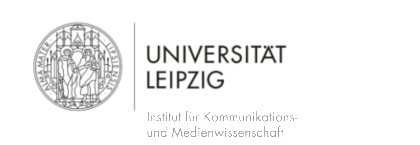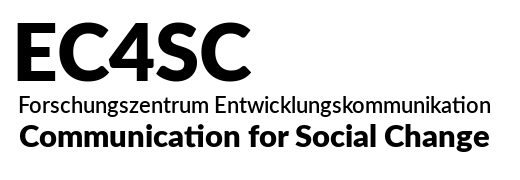Unseen Dynamics in Public Communication
Aim of the Conference
This event aims to broaden the understanding of transnationalization and platformization in German communication studies. By focusing on the dynamics of everyday communication spaces, the conference encourages participants to rethink theoretical and methodological approaches and develop innovative perspectives for research into transnationalization and diaspora communication. We are looking forward to your contributions and a lively discussion!
Third EC4SC conference as part of the MPS-AFG programme
Transnationalization Begins at Home –
Unseen Dynamics in Public Communication
Background and Objectives
Transnationalization, digitalization and platformization are transformative processes that are reshaping public communication. In German communication studies, transnationallization is often perceived as something that happens “elsewhere”— in global media networks, international institutions, or at transnational interfaces. However, this view neglects the significant dynamics occurring in everyday life.
Transnationalization begins at home: in private spaces, through digital media, and within everyday communication practices. Home is more than a physical place; it is a communicative hub where transnational connections are created, maintained, and negotiated. This phenomenon is particularly evident in a pluralistic society like Germany, where around a quarter of the population has a migration background. In these contexts, identities, narratives, and affiliations are simultaneously locally rooted and globally networked.
This conference will critically examine the interplay of transnationalization, platformization, and diasporic communication, focusing of how digital technologies and everyday media practices shape these processes. Influencer culture, multilingualism, and micro-level negotiations of identity highlight the ways in which private spaces are connected to broader public discourses.
As the third EC4SC event under the Media and Public Sphere of Afghanistan (MPS-AFG) programme, this conference aims to explore these often overlooked micro-processes and integrate them into broader communication studies theories.
It seeks to uncover the power dynamics, communicative shifts, and methodological challenges associated with transnationalization and digital media in everyday contexts.
You can register for the conference here: kontakt@transfertage-ec4sc.de
The conference invites papers on topics including but not limited to:
- Critical reflection on communication studies approaches to transnationalization: Why has everyday life been neglected, and how can this be addressed?
- Home as a transnational communication space: Exploring media practices, narrative negotiations, and everyday communication in transnational contexts.
- Digital media and platformization in transnational communication: Examining how digital technologies foster and shape transnational connections.
- Diaspora communication and influencer power: Analyzing how influencers act as transnational opinion leaders within diasporic communities.
- Multilingualism and language practices: Understanding language as a tool for negotiating identity and belonging in transnational family networks.
- Micro- and macro-level transnationalization: Connecting private spaces with public transnational discourses.
- Methodological challenges and innovations: Developing new approaches for researching transnational communication in everyday life.
Formalities
The conference is free of charge. Registration details are available on our website. We look forward to your participation and an inspiring exchange at the conference.
We thank you for your understanding and cooperation.
Organiser
Centre for Communication for Social Change at the Institute for Communication and Media Studies at Leipzig University
Dr Kefa Hamidi
Dr Hazrat Bahar
Ali Reza Hussanini
Dr Merga Bula Yonas
Mariam Meetra
Hamid Obaidi
Laily Habib
Abumoslem Khorasani
Prof. Dr. Patrick Donges
Partizipative Arena
Wir eröffnen einen Raum für Austausch, Diskussion und Vernetzung. Bringen Sie sich mit ein!
Programm
Freitag 30.10.
Praxis meets
Wissenschaft
ZOOM Talk
mit Nina Treu (Konzeptwerk Neue Ökonomie), Trong Do Duc (Unteilbar Sachsen), Cordula Weimann (Omas for Future)
Donnerstag 5.11.
Konferenz Tag 1
Was bewegen soziale Bewegungen?
mit Prof. Dr. Dieter Rucht
Dialogs for Everybody / Dialoge für jede_n
mit Dr. Bettina Fackelmann
Die eigentliche Arbeit passiert in Chatgruppen
mit Sophie Wagner
Zur Integration sozialer Gemeinschaften
mit Thomas Rakebrand
Social Intranets
mit Dr. René Sternberg
Die Erforschung von Partizipation und Öffentlichkeiten
Externes Panel I mit Konstantin Aal, Simon Holdermann, PD. Dr. Markus Rohde, Sarah Rüller (SFB 1187 – Medien der Kooperation)
Freitag 6.11.
Konferenz Tag 2
Sustainable Journalism and Peacebuilding
mit Fabiola Ortíz Santos
Gelungene oder missglückte Partizipation?
mit Hanne Detel, Ines Engelmann, Helena Stehle, Claudia Wilhelm
Meinungsaustausch in Nutzerkommentaren
mit Hanna Marzinkowski, Ines Engelmann
Media Accountability und partizipative Kommunikation
mit Caroline Lindekamp
Partizipation: Konzeptionelle Überlegungen zur Analyse der MEZ
mit Prof. Dr. Barbara Thomaß
Partizipative Öffentlichkeiten in der MEZ
Externes Panel II mit Media Development Assistance in the 21st Century (MEDAS 21)
Freitag 6.11.
Wissenschaft
meets Praxis
ZOOM Ideenwerkstatt – Diskussion und Vernetzung
mit Nina Treu (Konzeptwerk Neue Ökonomie), Trong Do Duc (Unteilbar Sachsen), Cordula Weimann (Omas for Future)
Organiser

Institute for Communication and Media Studies at Leipzig University
Sponsored by

VolkswagenStiftung


